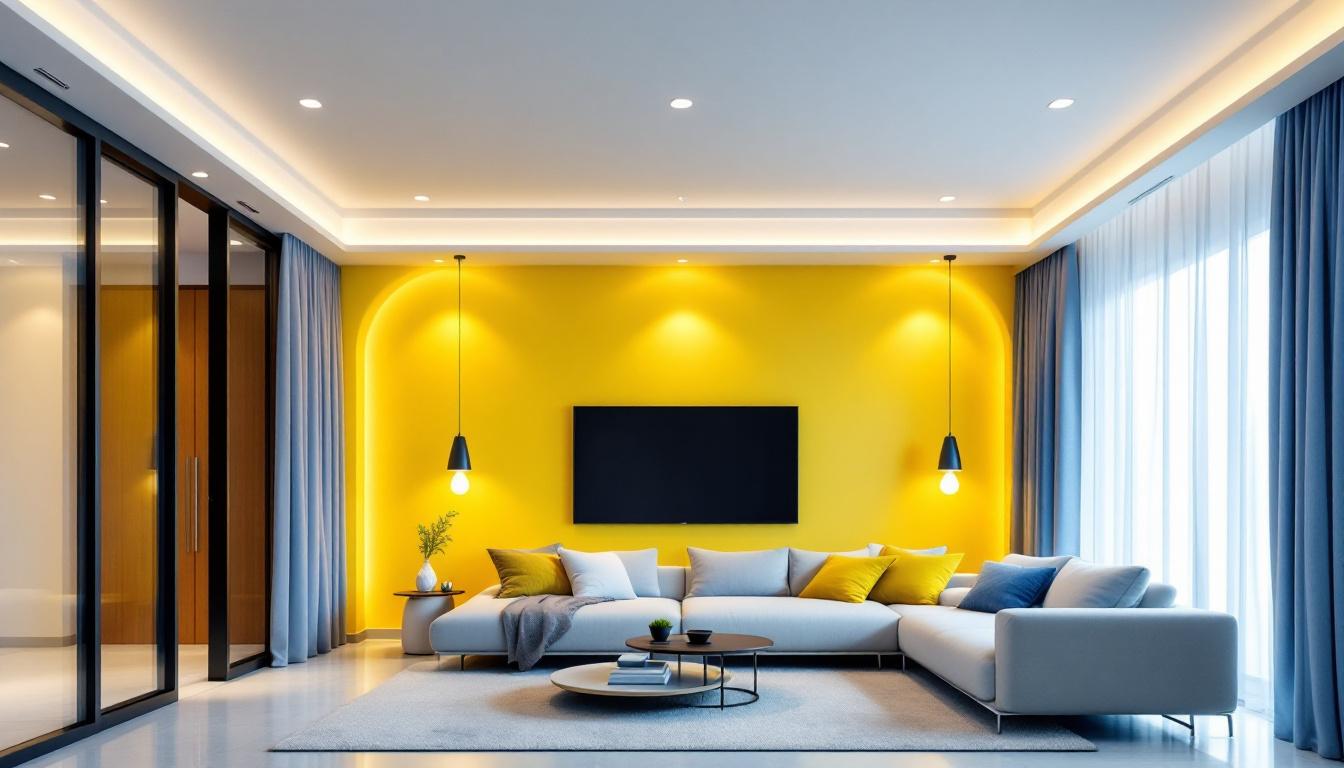
In the ever-evolving world of lighting design and installation, contractors are constantly seeking ways to enhance their skills and improve their business practices. The secrets to mastering the craft of lighting contracting go beyond technical knowledge; they encompass creativity, customer service, and the ability to adapt to new technologies. This article delves into essential strategies and insights that can elevate the expertise of lighting contractors.
Before diving into advanced techniques, it is crucial for lighting contractors to have a solid grasp of the fundamentals of lighting design. This foundational knowledge not only aids in creating effective lighting solutions but also enhances communication with clients and collaborators.
Light quality is a critical aspect that influences the ambiance of a space. It encompasses factors such as color temperature, color rendering index (CRI), and brightness. Understanding these elements enables contractors to make informed decisions about the types of fixtures and bulbs to use.
For instance, a warm color temperature (around 2700K) can create a cozy atmosphere in residential settings, while cooler temperatures (above 4000K) are often preferred in commercial environments for their clarity and focus. Mastering these nuances allows contractors to tailor lighting solutions to meet specific client needs. Additionally, the CRI measures how accurately a light source displays colors in comparison to natural light; a higher CRI value (above 90) is essential in settings like art galleries or retail spaces where color accuracy is paramount. By prioritizing light quality, contractors can significantly enhance the user experience within a space.
Lighting can be categorized into three primary types: ambient, task, and accent. Ambient lighting provides overall illumination, task lighting focuses on specific areas for activities, and accent lighting highlights particular features or objects. A skilled contractor knows how to blend these types to achieve a harmonious and functional design.
By assessing the requirements of a space and understanding how different lighting types interact, contractors can create environments that are not only aesthetically pleasing but also practical for everyday use. For example, in a kitchen, ambient lighting can be achieved through ceiling fixtures, while under-cabinet lights serve as task lighting for food preparation. Accent lighting, such as pendant lights over an island, can not only illuminate but also serve as a design statement. Furthermore, the strategic layering of these lighting types can help in creating depth and dimension, transforming a flat space into a dynamic and inviting area that caters to various activities and moods throughout the day.
The lighting industry is rapidly changing, with new technologies emerging regularly. Staying updated with these advancements is vital for contractors who wish to remain competitive and offer the best solutions to their clients.
Smart lighting systems have revolutionized the way spaces are illuminated. These systems allow users to control lighting remotely, customize settings, and even integrate with other smart home devices. Understanding how to install and configure these systems can set a contractor apart from competitors.
Moreover, educating clients about the benefits of smart lighting—such as energy efficiency and convenience—can enhance customer satisfaction and lead to more referrals. The integration of smart lighting with mobile applications means that users can adjust their lighting based on their mood or activity, whether they are hosting a dinner party or winding down for the evening. Additionally, features like motion sensors and automated schedules can optimize energy use, ensuring lights are only on when needed, which is particularly appealing to environmentally conscious consumers.
With a growing emphasis on sustainability, energy-efficient lighting solutions are becoming increasingly popular. Familiarity with LED technology, for instance, is essential for contractors. LEDs consume significantly less energy and have a longer lifespan compared to traditional incandescent bulbs.
Contractors should also be aware of government incentives and rebates for energy-efficient installations, as this knowledge can be a selling point for clients looking to reduce their energy costs. Furthermore, the shift towards energy-efficient lighting is not just about saving money; it also contributes to reducing the overall carbon footprint. By promoting energy-efficient options, contractors can play a pivotal role in fostering a more sustainable future. As more clients become aware of their environmental impact, they are likely to seek out contractors who can provide solutions that align with their values, making it essential for professionals in the field to stay informed about the latest advancements and best practices in energy-efficient lighting technology.
Effective communication is a cornerstone of successful contracting. Understanding client needs and expectations is paramount to delivering satisfactory results. This section explores strategies for enhancing communication skills.
Active listening involves fully concentrating, understanding, and responding to what the client is saying. This technique fosters trust and ensures that contractors accurately capture the client’s vision. By paraphrasing and asking clarifying questions, contractors can demonstrate their commitment to understanding the client’s needs.
Additionally, maintaining open lines of communication throughout the project can help address any concerns early on, preventing misunderstandings and potential conflicts.
From the outset, it is crucial to establish clear expectations regarding timelines, budgets, and project scopes. Providing clients with a detailed proposal that outlines these elements can prevent confusion later in the project.
Regular updates on progress and any potential changes to the plan can further enhance transparency and client satisfaction. When clients feel informed, they are more likely to trust the contractor’s expertise and decisions.
Each environment presents unique challenges and opportunities for lighting contractors. Understanding how to adapt designs for various settings is essential for creating effective lighting solutions.
In residential spaces, the focus is often on creating a warm and inviting atmosphere. Contractors should consider the lifestyle and preferences of the homeowners when designing lighting plans. For example, layering different types of lighting can enhance the functionality and aesthetics of each room.
Moreover, incorporating dimmers and adjustable fixtures allows homeowners to customize their lighting based on their activities and moods, further enhancing the living experience.
Commercial spaces often require a different approach to lighting design. The primary goal is to create a functional environment that meets the needs of employees and customers alike. Factors such as energy efficiency, safety, and compliance with regulations must be taken into account.
Contractors should also consider the branding and identity of the business when designing commercial lighting. The right lighting can enhance the overall customer experience and contribute to a positive impression of the brand.
Establishing and maintaining strong relationships with suppliers is another key secret to success for lighting contractors. These relationships can lead to better pricing, access to the latest products, and support when challenges arise.
Effective negotiation skills can lead to favorable terms and pricing from suppliers. Contractors should be prepared to discuss their needs and expectations clearly, while also being open to finding mutually beneficial solutions.
Building a reputation as a reliable contractor can also encourage suppliers to offer better deals and prioritize your orders, which can be invaluable during tight project timelines.
Suppliers are often the first to know about new product releases and innovations. By fostering a strong relationship with suppliers, contractors can stay informed about the latest trends and technologies in the lighting industry.
This knowledge not only enhances the contractor’s offerings but also positions them as a knowledgeable resource for clients, further building trust and credibility.
In a competitive market, effective marketing strategies are essential for attracting new clients and retaining existing ones. This section explores various approaches that lighting contractors can adopt to enhance their visibility and reach.
Social media platforms offer a powerful way for lighting contractors to showcase their work and connect with potential clients. By sharing high-quality images of completed projects, contractors can demonstrate their expertise and creativity.
Engaging with followers through informative posts, tips, and industry news can also position contractors as thought leaders in the field, attracting a loyal audience interested in their services.
A well-designed website serves as a digital portfolio and a point of contact for potential clients. Contractors should ensure that their website is user-friendly, visually appealing, and optimized for search engines.
Including client testimonials, case studies, and a blog can enhance credibility and provide valuable information to visitors, ultimately driving more inquiries and conversions.
The lighting industry is constantly evolving, making ongoing education and professional development essential for contractors who wish to stay ahead. Engaging in training programs, workshops, and industry conferences can provide valuable insights and skills.
Participating in certification programs can enhance a contractor’s qualifications and credibility. These programs often cover advanced lighting design principles, energy efficiency, and the latest technologies.
Having certifications can also be a selling point when bidding for projects, as clients often prefer to work with contractors who have demonstrated expertise and commitment to their craft.
Attending industry events and conferences provides valuable networking opportunities. Contractors can connect with peers, suppliers, and potential clients, fostering relationships that can lead to future collaborations and referrals.
Networking also allows contractors to share experiences and learn from others in the field, further enhancing their knowledge and skills.
Mastering the art of lighting contracting requires a multifaceted approach that encompasses technical knowledge, effective communication, and a commitment to continuous improvement. By understanding the fundamentals of lighting design, staying updated with technological advancements, and building strong relationships with clients and suppliers, contractors can elevate their expertise and thrive in a competitive market.
Ultimately, the secrets to success in the lighting contracting business lie in a combination of creativity, professionalism, and a genuine desire to meet client needs. By embracing these principles, lighting contractors can illuminate their path to success.
Ready to take your lighting projects to the next level? At LumenWholesale, we provide lighting contractors like you with the highest quality, spec-grade lighting products at prices that can’t be beaten. Say goodbye to local distributor markups and hello to a vast selection of industry-standard, reliable lighting solutions. With free shipping on bulk orders, you can trust that you’re getting premium lighting at the best value — no hidden fees, no compromises. Elevate your expertise and delight your clients with the perfect blend of quality, affordability, and convenience. Wholesale Lighting at the Best Value is just a click away.

Discover what a PAR lamp is and explore its pros and cons for lighting contractors.

Discover the top pot lights that are transforming kitchen designs and boosting lighting contractors’ success.

Discover how to choose the best recessed lighting bulbs to ensure your lighting projects stand the test of time.

Discover why staying updated on pendant LED light technology is crucial for lighting contractors.